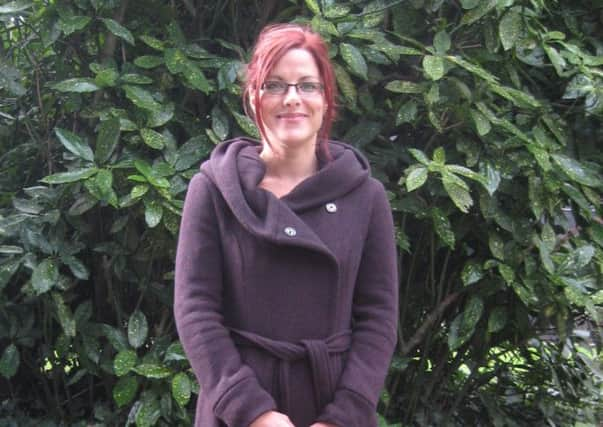New call to end stigma of mental ill-health


A new campaign is being launched today through See Me, a programme funded by the Scottish Government, urging people to take action against discrimination in all walks of life including at work, education and healthcare.
Advertisement
Hide AdAdvertisement
Hide AdThe group claims mental health stigma and discrimination have left people feeling “worthless, alone and frightened” and action needs to be taken to end it, as it launched its “People like you will end mental health discrimination” campaign.
Judith Robertson, See Me programme director, said: “We are launching a campaign which signals the end of a culture in Scotland that actively discriminates against people with mental health problems, stigmatising them and their families.
“Stigma and discrimination can make people who are mentally unwell feel worse. It can stop them asking for help and can ultimately be the difference between life and death.
“Everyone has mental health and we can all be hit by mental ill-health. But we each have the power to make a positive difference in the lives of our families, friends and colleagues when they are affected by mental health problems.”
She added: “All over Scotland, people like you will end mental health stigma and discrimination wherever it occurs.
“See Me is building a movement which will bring people together from all over the country and encourage them to challenge discrimination at its roots.
“Our goal is equality that ensures people with mental health problems have the same opportunities as others to lead a fulfilled life.”
See Me confirmed that two out of three people with mental health problems actually stop some day-to-day activities because of the fear of stigma and were also likely to die earlier.
Advertisement
Hide AdAdvertisement
Hide AdA spokesman for See Me added: “On average, people with a mental illness die five to ten years younger than the general population.
“People with mental health problems are also less likely to be employed – 76 per cent of the population are in employment, compared to 64 per cent of those with a common mental health problem and only 40 per cent who have a severe mental health illness.”
Richard Monaghan, 61, a former rail industry executive, said: “When I was a senior director, I was constantly being contacted. As soon as it was revealed I had a breakdown from depression, all communication with me stopped.
“People avoided having conversations with me – it was quite dreadful.”
On one occasion, a jobcentre worker told him there was “no point” in continuing with an interview after he broke down in tears in front of 70 people.
CASE STUDY
Leanne McKillop, from Greenock, said the stigma she faced when she had an eating disorder led to “me questioning myself as a person”.
She said that people would tell her that all she had to do was “pick up a fork” and by not eating she was “hurting” her family.
The 31-year-old, who is taking action by speaking about her story to help others, is encouraging people to join the See Me campaign.
Advertisement
Hide AdAdvertisement
Hide AdShe said: “It only takes one person to change someone else’s actions and that can have a knock on affect. The worst stigma I experienced was when I was in a psychiatric ward and their advice to me was to tell me just to eat some chocolate. It was dismissive of my illness.
“The nurses in the ward didn’t have a clue how to treat someone with anorexia. They just told me to eat and they did it in front of all the other patients. I immediately didn’t want to be there.
“Having the nurses tell me that made me think I can’t actually be that ill. If it is was simple as just eating chocolate then I though that I was probably alright and I didn’t need to be there. One nurse said to me ‘you don’t look as ill as some other people I see so you can’t be that bad’.”
She added: “When you have an eating disorder, you always think you’re not as bad as people say, so to be told that will just do more harm. It just made me think I can’t be ill. I didn’t get the right treatment.”